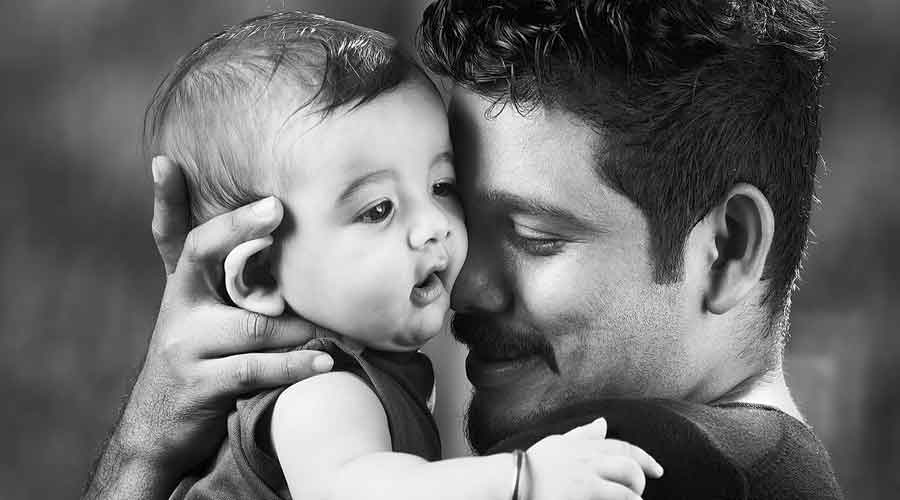After a fight between siblings after a fight. A tight hug between friends when they meet after a long time. A passionate kiss between lovers. A warm pat on the back from a parent before exams. A huddle of cricketers before a match begins. Each of these have a thing in common, namely, touch.
Human touch can bring about love, positivity, hope and bonding. This is the theory underlying the “kangaroo mother care” recommended for newborns, especially those who are preterm and have low birth weight. Developed in the 1970s, this involves continuous chest-to-chest and skin-to-skin contact of the infant with the parent (mostly mothers). Research has shown that this helps the physical and emotional development of the child, which in turn is linked to the mother-infant bonding.
From the advent of civilisation, humanity has lived through formations of society and relationships. The need to stay close to one another, meet, mate or interact has been among the basic needs of man, irrespective of the evolutionary period. An essential aspect of such interactions is “social touch”, which is a common manner of conveying care, affection and love, across species.
Back in the 1950s, an anthropologist named Harry F. Harlow performed a seminal experiment on baby monkeys. They were separated from their mothers and kept with artificial “mother figures” made up of broken wire and soft cloth. The reaction of the babies was interesting. Irrespective of the type of comfort or presence of food, they preferred the mother made of cloth, whom they could hug at will and play with too. Their growth and development seemed linked to the length of time spent in the physical proximity of the mother figure. This finding was the basis for the landmark work that Harlow did on mother-child attachment and the role of touch in learning.
Similar behaviour of cuddling, pecking, grooming can be seen in birds, cats, dogs, lizards, fish, though the manifestation of touch may vary.
Touch is the earliest sensation to develop in each of us after birth. In fact, research has shown that even the movement of the foetus in the mother’s womb is a social behaviour that determines the quality of pregnancy and delivery. Subsequently, touch is used — throughout life — to convey varying grades of emotions, be it reassurance, comfort, support, encouragement, love, companionship, care or passion.
At the same time, whether this “touch” is pleasurable or not is decided by context, social appropriateness, identity of the persons involved and preferences of the one being touched.
There are several brain regions and chemicals in our body that control and coordinate nerve signalling in response to social touch that leads to positive emotional changes. This is true for both friendly affectionate touches as well as sexual intimacy, though the physical changes involved are different. It has also been shown to boost immunity, enhance coping in times of stress and instill hope and confidence. One of the hormones, oxytocin, which is considered as the “love hormone”, has to do with social touch.
The concept of “good touch versus bad touch” forms the primary part of sex education imparted to children. Practices and rituals of showing care via touch have shown to reduce hatred, aggression and crimes in certain cultures. Touch is vital in relationships.
After the outbreak of the coronavirus pandemic, any form of contact is feared. And, almost every other aspect of life has been digitalised.
In the “new normal” of social distancing, where touch is forbidden and masks hide emotions, panic and fear are dealt with from a distance.
Of course, social distancing is necessary to curb the spread of infection, but it comes at a price. Actual human contact is far more reassuring than the cold, artificial feel of a screen when you attempt to reach out to a person. Depriving one and all of affectionate touch and physical contact, Covid-19 has brought about a “touch hunger”— a concept increasingly being studied.
Our research, published in the International Journal of Social Psychiatry, highlights the adverse effects “touch hunger” can have on mental state, immunity, infection-fighting capacity and tolerance to stress. A frontline worker once told me, “The only thing that kept me going was a hug from my daughter every day when I return home. Now, even that is gone.”
Indeed, partners are afraid of being intimate, children have stopped playing together and, suddenly, the same touch of love and care” has changed to that of “fear and stigma”. Alongside lives, emotional bonds too have been hampered by the virus.
With the vaccination drive on the rise, we can only hope that soon we will be able to hold the hand of our loved ones again, like the good old days.
The writer is a psychiatrist at Nimhans, Bangalore











